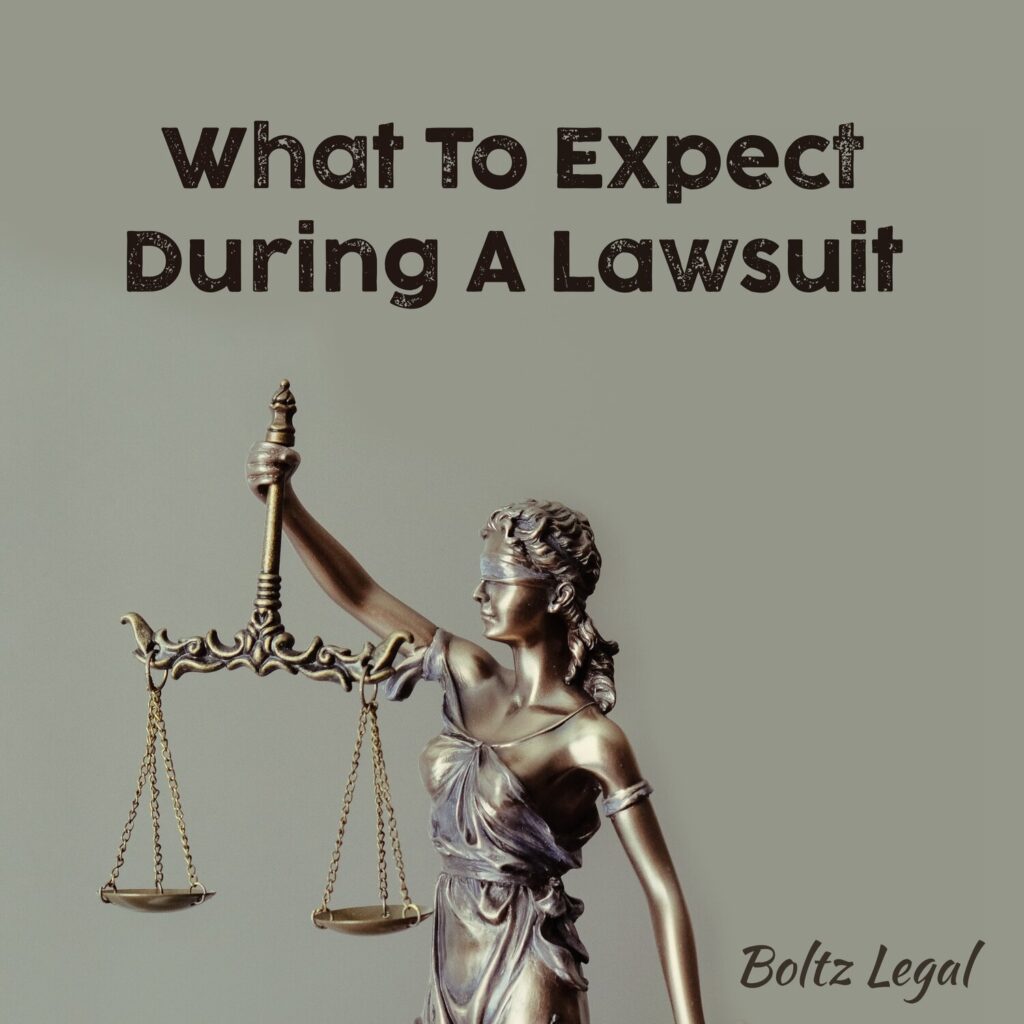A lawsuit is a daunting and often lengthy process, and it can be intimidating for parties on both sides. There are multiple steps involved, and the entire process can take years to conclude in some cases. No matter the type of case, it’s critical to first start with an experienced attorney who will thoroughly collect evidence, prepare you for anything that can happen, and be there for you during this trying time.
With that said, what exactly can you expect during a lawsuit? Learn about the process of filing a lawsuit, participating in a deposition, and more below.
Hiring an attorney and filing the lawsuit
The first step in filing a lawsuit is finding the right attorney with the experience to successfully represent you. When you are seeking an attorney, it’s important to find someone with the appropriate experience and good references. Initially, you’ll have a consultation with them so you can ask questions and they can determine whether you have a case, and if so, if they are the right fit for you.
Once you’ve agreed to representation with your attorney and signed with them, they will then file the lawsuit. Before the filing, you will likely have more interviews and conversations with your attorney so they can have as much information as possible.
Discovery begins
After the lawsuit is filed, then begins the discovery process. This is the formal process of gathering evidence. During discovery, your attorney will typically work with you to collect all necessary information and also determine which witnesses will be needed for deposition.
The deposition process
The deposition is a critical part of the lawsuit and is part of the discovery process. This is essentially an interview, out of the courtroom but under oath. During the deposition, attorneys on both sides are present, along with witnesses and a court reporter. Your attorney will help you prepare for the deposition and the questions that you may be asked. The goal of the deposition is to explore and confirm the facts of the case and determine if it can be settled out of court or if a trial is needed.
A settlement or trial
In many, if not most cases, the parties reach a settlement as that is the desired outcome. As the plaintiff, you decide if you want to accept the settlement offer. If a settlement cannot be reached, the case will then go to trial and be subject to a jury’s verdict. During the trial, you may have to testify in court and the process can take longer.
Why Brooke Boltz is the best choice
Brooke Boltz is an experienced personal injury and insurance attorney who knows how trying and stressful a lawsuit can be. That’s why she makes the process as smooth as possible for clients and is always ready to answer their questions and prepare them for every step of the way. If you’ve been injured or are in an insurance dispute, schedule a free phone consultation with Brooke today.

